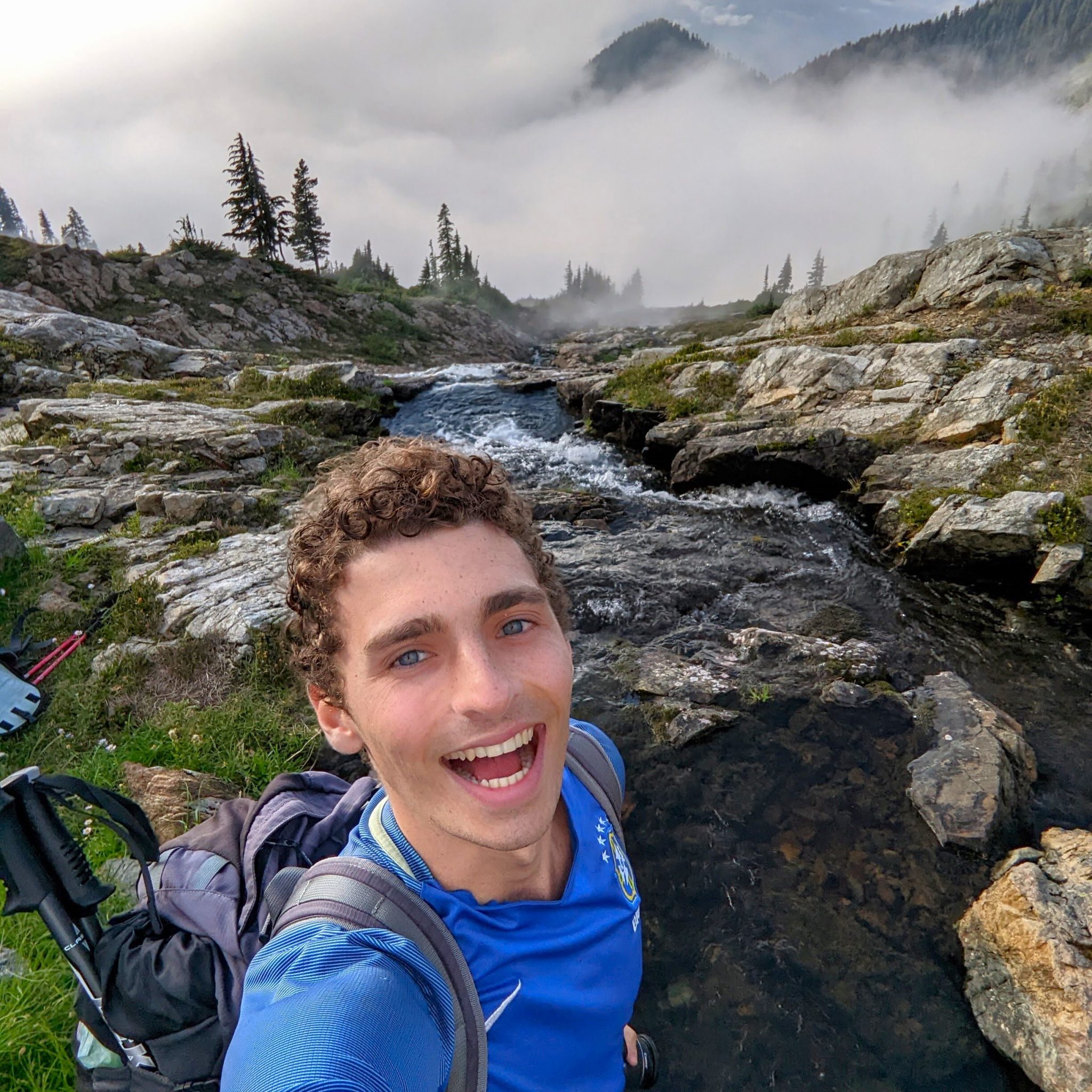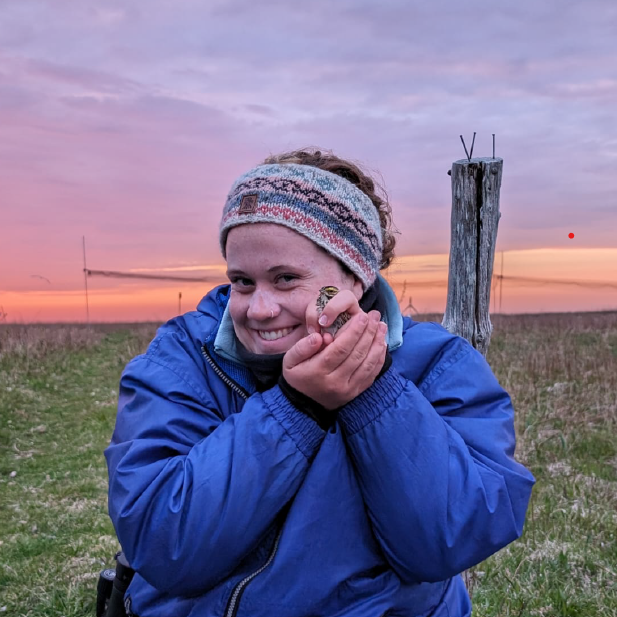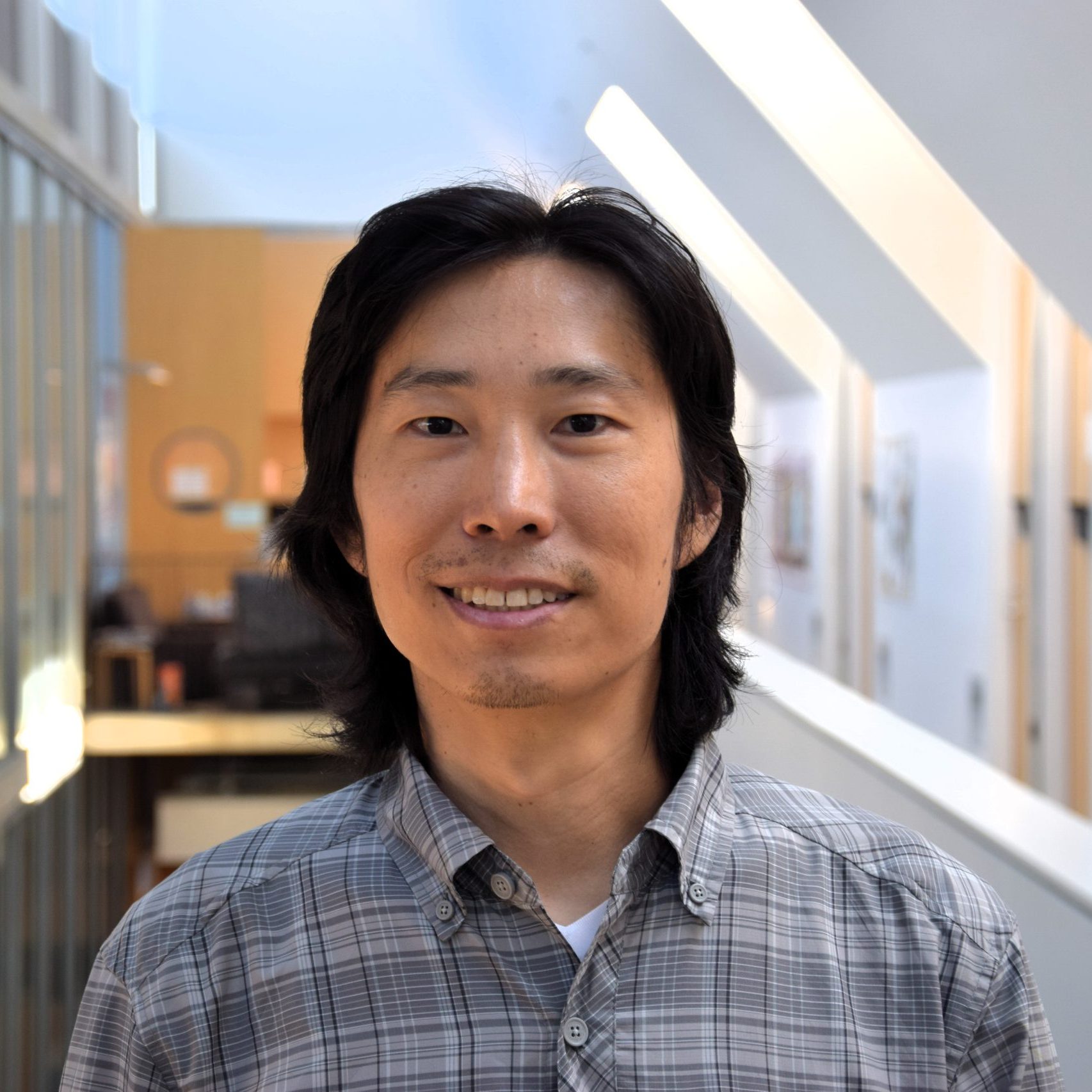Aloysio (Aloy) Campos

Aloysio (Aloy) Campos
MSc Student
Contact Details
aloysio[dot]cdp[at]ubc[dot]ca
Bio
Aloysio (Aloy) Campos is a Master’s of Science student in Resources, Environment, and Sustainability at UBC, working on the Accelerating Community Energy Transition (ACET) project. He uses deep learning models to analyze data on the energy transition in Indigenous and remote communities in BC. Previously, Aloy received the International Major Entrance Scholarship to complete his undergraduate degree in Electrical Engineering at UBC.
Passionate about working in sustainability, he has developed a carbon emissions calculator for UBC in his role as a Climate Planning Coordinator, and has created a climate action toolkit for the Sustainability Hub. Aloy co-designed a PhD program with Professor Naoko Ellis, now his master’s supervisor, to tackle climate change through transdisciplinary collaboration. His experience also includes engineering laboratory equipment for climate technologies research, advising a billion-dollar company on environmental due diligence, and supporting equity-deserving groups in engineering education.
Samantha Blackwell

Bio
Sam Blackwell is a first year master’s student under the supervision of Dr. Kai Chan, investigating the role of community-based science in monitoring urban bird nest predation in Vancouver, and how participation in such a program may influence an individual’s values and actions in favour of conserving urban biodiversity. Blackwell’s academic interests include ecology, conservation and science communication. Outside of school she enjoys birdwatching, swimming, reading and crafting. Ultimately, she envision’s herself as a passionate advocate for the natural world, dedicated to inspiring others to develop a deep and lasting connection to the land.
Adrian Lu

Adrian Lu
Postdoc
Contact Details
adrian.lu[at]ubc[dot]ca
Bio
Adrian is a Postdoctoral Fellow working with Claire Kremen to explore the synergies and trade-offs between multiple ecosystem functions along multi-scalar habitat complexity gradients in California’s Central Coast strawberry growing region. At IRES, Adrian seeks to cultivate a deeper understanding of the relationships among traditional resource management, biodiversity, and human well-being. Trained as an ecologist and attorney, Adrian aims to apply scientific findings to advance the interests of historically marginalized communities.
October 31, 2024: IRES Faculty Seminar with Dr. Liv Yoon
Biopolitics of climate injustice: The unequal and compounding impacts of climate and housing crises on indoor environmental quality and health
Location: Henry Angus Room 347 (2053 Main Mall)
No food or drinks allowed in venue.
Time: 12:30pm to 1:20pm
View Recording
Talk summary:
In this talk, I first introduce the concept of biopolitics of climate injustice, which refers to how bodies become sites where climate injustice is not only experienced, but unequally distributed – with those already facing multiple forms of marginalization bearing the heaviest burdens. I then explore how these dynamics manifest indoors, particularly in low-income housing where residents are left without adequate protection against climate-induced hazards like heatwaves and wildfires. Drawing on preliminary observations from an interdisciplinary, trans-sectoral study monitoring indoor environmental quality (IEQ) and household energy insecurity through sensors, surveys, and wearable fitness trackers, I investigate how these environmental conditions impact health. This talk aims to reveal the structural forces driving climate vulnerability and advocates for justice-oriented policy solutions that address the interconnected and escalating threats of climate change and housing insecurity.

Bio:
Dr. Liv Yoon is Assistant Professor in the School of Kinesiology at UBC. Her research is at the intersection of climate change, social inequities, and health, with a focus on community engagement and participatory methods. Her PhD training in social sciences and socio-cultural kinesiology informs her to think about bodies in sociopolitical contexts, provoking thought about how some bodies are considered more ‘dispensable’, and in turn, rendered more vulnerable to climate-related risks and pollution. Her research considers taking climate change as an opportunity to challenge the status quo and promote structural changes that alleviate social inequities that both led to, and are exacerbated by, the climate crisis.
October 3, 2024: IRES Faculty Seminar with Dr. Qingshi Tu
Addressing Grand Challenges in Life Cycle Assessment Through AI
Location: Beaty Museum Allan Yap Theatre (Basement, 2212 Main Mall). Please check in at front desk on main floor before going downstairs.
No food or drinks allowed in the Theatre.
Time: 12:30pm to 1:20pm
View Recording
Talk summary:
Life cycle assessment (LCA) is essential for evaluating the environmental performance of technologies and policies, but it faces challenges like missing data and inconsistent data matching. Traditional methods, including process simulations and existing machine learning approaches, have limitations in scalability and generalizability. Large language models (LLMs) offer a solution by leveraging their vast, diverse knowledge base for automating life cycle inventory (LCI) data curation and enabling multi-modal analysis. This presentation outlines how LLMs can address these challenges and discusses future research directions to enhance their use in LCI modeling.

Bio:
Dr. Qingshi Tu is an Assistant Professor of Industrial Ecology at Department of Wood Science at UBC. Dr. Tu has a strong record of life cycle assessment (LCA) and techno-economic analysis (TEA) research on a variety of topics. Dr. Tu’s research focuses on: 1) creating open-source databases and models for evaluating the environmental, economic and social impacts of emerging technologies, 2) transforming knowledge into user-friendly tools and educational materials, 3) engaging different stakeholders to collaborate on sustainable bioeconomy projects.
October 17, 2024: IRES Faculty Seminar with Dr. Simone Philpot
Evaluating impact reduction technologies: Decision support for a future-ready marine shipping industry
Location: Beaty Museum Allan Yap Theatre (Basement, 2212 Main Mall). Please check in at front desk on main floor before going downstairs.
No food or drinks allowed in the Theatre.
Time: 12:30pm to 1:20pm
Click here to register for Zoom link. Zoom will be terminated if we encounter tech problems 5 to 10 mins into the seminar.
Talk summary:
Marine shipping provides critical services, while also being the most efficient transportation option available when it comes to CO2 emissions per cargo tonne/mile. However, vessels still cause a wide range of environmental impacts (eg. harmful exhaust, underwater radiated noise, and chemical leaching). As expectations rise around minimizing these impacts, a range of technology and design alternatives are available for consideration. Given the complexity of vessels and the ecological systems they transit, evaluating these alternatives is no simple task. Drawing on case studies with the National Research Council Canada and the Canadian Coast Guard, we are developing decision support grounded in best practices from the decision sciences and techniques from systems design. In this talk, you will hear about our case studies, learn about the tools we are using to manage complexity, and get a look at our preliminary evaluative framework.

Bio:
Simone Philpot is a Postdoctoral Research Fellow at the Institute for Resources, Environment and Sustainability. Simone merges systems modelling and qualitative research techniques to examine environmental management and planning issues. At the Lab for Environmental Assessment and Policy, she is developing a technology assessment framework for marine shipping that captures a range of environmental impacts. Previously, Simone completed a Postdoctoral Fellowship in the University of Waterloo’s Department of Systems Design Engineering where she investigated resource management conflicts. She holds a Ph.D in Geography and Environmental Management with specialized training in collaborative water management, from the University of Waterloo.
Graduate Academic Assistant for the Pathways to Zero Impacts project | Deadline September 13
Dr. Amanda Giang’s LEAP lab is looking to hire a Graduate Academic Assistant for the Pathways to Zero Impacts project. This is a part-time temporary role for a graduate student.
Details from the posting are below and you can learn more about the project here.
We are seeking a highly motivated graduate academic assistant (GAA) to contribute to a Mitacs-funded study, ‘Pathways to Zero-Impact Shipping’. The primary goal of this project is to develop decision support for assessing alternative technologies for reducing the environmental impacts of marine shipping. The GAA will work at the University of British Columbia, Vancouver campus. Working closely with the multi-disciplinary team at UBC and non-profit partner, Clear Seas, the GAA will support tasks focused on identifying and characterizing the environmental impacts of alternative vessel technologies and fuels.
Specific responsibilities: The GAA will work closely with and report to Dr. Simone Philpot (UBC), Dr. Amanda Giang (UBC), and Clara Kaufmann (Clear Seas) and work with other members of the Pathways to Zero-Impact Shipping research team on activities and duties related to assessing the environmental impacts of alternative vessel fuels and technologies.
Examples of duties to which the GAA may contribute include, but are not limited to:
- Search, retrieve, and synthesize research related to the environmental impacts of a range of vessel technologies and fuels. This may require performing analytic tasks (examples may include: aspects of life-cycle analysis, ecological footprint analysis, risk assessment, scenario analysis) and back-of-the-envelope calculations related to energy and fuels.
- Record and manage data to a high professional degree.
- Attend and contribute to research meetings as needed.
- Work both independently and as part of a multidisciplinary team.
- Support interactive workshops with non-academic stakeholders
Desired qualifications:
- Currently enrolled in a Master’s or PhD program in science or engineering. We will consider candidates from other related fields who can demonstrate appropriate expertise. (for example, but not limited to resources management, environmental impacts assessment, geography).
- Experience or training in naval architecture and marine engineering will be considered an asset.
- A strong interest in ship design is highly valued.
- A strong interest in energy and fuels is an asset.
- Interest related to maritime environments is an asset.
- Knowledge of research skills such as systematic literature reviews and data management or a strong interest in developing these skills, is highly valued.
- Ability to work collaboratively in a team atmosphere as well as independently.
- Ability to work collaboratively and professionally with stakeholders.
How to apply: Please email Dr. Simone Philpot (simone.philpot@ubc.ca) a 1-2 page (max.) cover letter and a CV using the subject line ‘GAA Pathways’. We will begin reviewing applications on September 13.

September 19, 2024: IRES Faculty Seminar with Dr. Holly Caggiano
Opposition or opportunity? The role of community benefits in just energy transitions
Location: Beaty Museum Allan Yap Theatre (Basement, 2212 Main Mall). Please check in at front desk on main floor before going downstairs.
No food or drinks allowed in the Theatre.
Time: 12:30pm to 1:20pm
Click here for Zoom Recording
Talk summary:
As demand for distributed renewable energy generation has increased rapidly, so have conflicts over siting large-scale projects. Many wind and solar projects in the US and Canada have faced delays and cancellations that slow progress toward decarbonization goals. Meaningful community engagement and direct, verifiable benefits co-creation are necessary to avert these trends—and to ensure an equitable, rather than exploitative, energy transition. This talk will first examine recent findings from a survey of residents and local elected officials in Pennsylvania, USA that highlight how community benefits can build bipartisan support for energy infrastructure projects. Next, I will discuss emerging research on community benefits agreements, considering how new practices and policies might work to build shared value, prioritize justice, and expedite equitable energy development to mitigate climate change.

Professor of Community and Regional Planning, UBC
Bio:
Holly Caggiano is an Assistant Professor in the School of Community and Regional Planning at the University of British Columbia. Her work explores social dimensions of climate change in the US and Canada, and currently focuses on planning for just energy transitions.
September 12, 2024: IRES & IBioS Seminar with Dr. Lucas Alejandro Garibaldi
Optimizing Agricultural Landscapes: Enhancing Yields and Sustainability through Ecological Intensification
Location: Beaty Museum Allan Yap Theatre (Basement, 2212 Main Mall). Please check in at front desk on main floor before going downstairs.
No food or drinks allowed in the Theatre.
Time: 12:30pm to 1:20pm
Click here for Zoom Recording
Note: Lucas will be presenting virtually and we will stream the presentation in the Beaty Museum Allan Yap Theatre.
Talk summary:
This talk will explore the role of landscape configuration and ecological intensification in optimizing agricultural productivity and sustainability, drawing insights from recent studies across Argentina’s agricultural regions. Key findings demonstrate that smaller fields, increased edge density, and proximity to natural habitats not only enhance crop yields—such as sunflower in the Pampas—but also reduce the prevalence of herbicide-resistant weeds in maize and soybean fields. These results underscore the importance of integrating ecological principles into agricultural practices to foster biodiversity, improve pollination, and control weeds naturally. By rethinking landscape design and management, we can achieve a balance between high productivity and long-term environmental health, offering practical strategies for sustainable agriculture in diverse cropping systems.

Bio:
Lucas Alejandro Garibaldi is a researcher and educator specializing in agroecology, biodiversity, bees, and sustainable agricultural practices. He holds a Ph.D. in Agricultural Sciences and is the Director of the Institute for Research in Natural Resources, Agroecology, and Rural Development (IRNAD) at the National University of Río Negro, Argentina. Garibaldi has authored over 197 scientific articles and 11 books, with his work widely cited in the academic community. He is also an active contributor to international platforms like IPBES and has received numerous awards for his contributions to science and technology.
Thank you to Interdisciplinary Biodiversity Solutions Collaboratory (IBioS) for co-sponsoring this seminar!